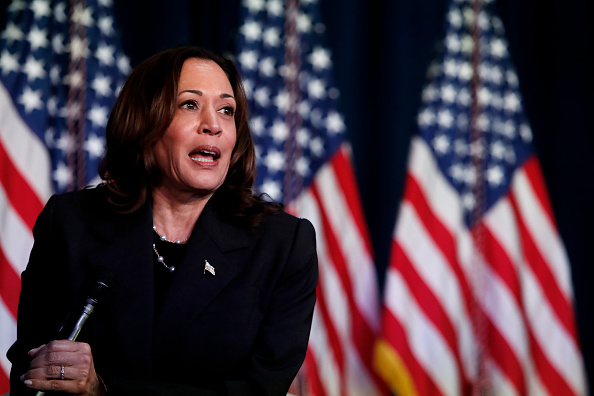
Chris duMond/Getty Images News
With President Joe Biden earlier Sunday saying he will end his campaign for re-election and endorsing Vice President Kamala Harris, the focus now turns on her positions on issues.
While Harris is not guaranteed the nomination of the Democratic Party for president, a number of high-profile lawmakers have already thrown their support behind her.
Harris has engaged in issues involving health care since her days as California Attorney General. One of her most significant came in July 2016 when she joined 11 other state attorneys general to sue a proposed merger between Cigna International (NYSE:CI) and Anthem, now known as Elevance Health (NYSE:ELV). That deal eventually fell apart.
A year earlier, she questioned the interest of Prime Healthcare, an operator of for-profit hospitals, in buying Daughters of Charity Health System, a safety-net system. Though the deal went through, there were hundreds of conditions attached.
When Harris first joined the U.S. Senate in 2017, she backed the Medicare for All proposal proposed by Sen. Bernie Sanders (I-Vt.), which would provide a single-payer, national health care system.
She later moderated her position in 2019 when she ran to become the 2020 Democratic presidential nominee by having a role for private health plans.
As vice president, Harris saw two key pieces of legislation impacting drug pricing signed into law by Biden: A $35 monthly out-of-pocket cap on insulin for Medicare enrollees and Medicare drug pricing negotiation.
Even though the Inflation Reduction Act cap only applies to Medicare enrollees, the three largest insulin makers, Eli Lilly (NYSE:LLY), Novo Nordisk (NVO), and Sanofi (SNY) are also offering some of their insulins for $35 a month regardless of insurance status.
Some of the drugs subject to Medicare pricing negotiations starting in 2026 include Eliquis, a blood thinner marketed by Bristol Myers Squibb (BMY) and Pfizer (PFE); Merck’s (NYSE:MRK) anti-diabetic medication Januvia; and Imbruvica, a blood cancer therapy marketed by AbbVie (ABBV) and Johnson & Johnson (JNJ).
